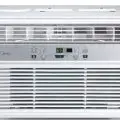Hey! This site is reader-supported and we earn commissions if you purchase products from retailers after clicking on a link from our site.
There’s nothing worse than having your propane refrigerator go on the blink while travelling, not being able use your propane stove and if you’re camping during cold weather, not having your furnace in working order. Several factors can prevent your propane appliances from working correctly, but in this article, I’ll share with you some of the more common issues that could occur and would prevent the proper performance of those appliances, and while some may seem too simplistic, others may be more complex to the point where you may feel more comfortable having a professional diagnose and repair.
How much propane do you have onboard?
Yes, this is one of the simpler solutions to troubleshooting your system, but I have seen numerous campers that merely ran out of propane and their tanks were empty. One good way to determine whether this is the case is to check the interior of your rig for the smell of propane. If you do smell propane and the tank is empty, there may not be enough gas in the propane tanks to keep your pilot lights on your stove lit. As a rule, there will always be some residual gas remaining in your tank and while that may not be enough to keep your pilot lights on the stove lit, it will still be enough to slowly leak inside through your pilot lights.
When this occurs, try to manually light your pilot lights. If they don’t light, then it’s likely that you don’t have enough propane in your tank or tanks to keep them lit. If this is the case and you’re not near a place that can refill your tank, then go outside and turn off the valves to avoid any propane from leaking into your rig.
Most furnaces will have an electronic igniter that won’t allow the propane to flow through the line without being lit first, so it’s unlikely that would cause a smell of gas inside your rig and this is also true with refrigerators, but it’s always a good idea to just turn the flow of propane off until you have refilled the tank.
If you have more than one tank, check your crossover valve
In my rig, I have two tanks that have a crossover valve between them. While my valve is automated, meaning when one tank is emptied, the crossover valve automatically switches over to the other tank, some rigs may have a manual switch. This means once one tank is dry, you will need to go outside and turn that valve so that your other tank will begin to fill your system. As a rule, once you turn the supply line back on you will hear the gas begin to fill the lines again if this is the problem.
This crossover valve will also prevent propane from leaking out if you decide to disconnect the empty tank to have it refilled. However, I would highly recommend that you completely shut off the gas supply from either side before you disconnect the empty tank. Should the crossover valve be faulty, this will prevent any back flow into the disconnected propane line, and it will also help to prevent any lost propane and a possible fire hazard. Remember, fittings on a propane tank are usually steel as is a wrench used to disconnect the line from the tank and anytime you have steel-on-steel contact, there’s a possibility of a spark which could lead to a fire.
Is your RV level?
Believe it or not, if your RV isn’t level, this can cause an improper flow of propane and your appliances may not work correctly. This is especially true with a refrigerator that can be cooled using propane. While this may not affect your stove or oven, it will in all likelihood keep your refrigerator from properly cooling your food as needed. One good way to check this issue is to see if your stove burners light. If they do, then check to see if your rig is level and if it’s not, level the rig correctly, wait an hour or two and check the temperature inside your refrigerator to see if it’s dropped.
Check the flame colors in your furnace, stove and water heater and examine the excess flow valve
Also known as a “Flow Limiter” or a “Propane Limiting Device”, this safety feature is designed to reduce or eliminate the flow of propane should a leak occur in one of the lines. It’s typically a spring-loaded device with a small ball valve inside the gas fittings. If gas is discharged too quickly, as it would be when a catastrophic leak occurs, the spring engages the ball valve to keep from flooding your RV with propane.
Check your mainline regulator
When your RV propane regulator is faulty you may hear a popping noise when you turn your stove burners on or off. Also, you may hear a hissing noise which is indicative of too much gas flowing into your burner jets. Look at the flame, is it a weak orange or yellow color? This usually means you’re not getting enough propane through the regulator. Additionally, flames floating above the burner ports is also a sign of a bad regulator.
To be honest with you, I’ve owned several RVs and the only problem I’ve ever had with a propane regulator was on my outdoor gas grill, so they very rarely go bad. However, like any mechanical part, it’s not totally unheard of for your regulator to fail and they are easy to replace and not awfully expensive. Just be sure to shut your tanks off before you remove the regulator to avoid any possibility of a fire.
As a rule, you may also just need to reset your system. To do this, simply turn off your gas supply lines and wait 20 minutes. I would also suggest that you open up a couple of windows in your rig and then turn your stovetop burners to the on position as this will help to evacuate the lines to your stove. One you have waited the 20 minutes, turn your burner knobs back to the off position and turn your tank valves back on to refill the lines. Next, go back inside and light your burners. If none of the above problems continue to exist, then you have successfully reset your regulator. However, if after the reset your problems still persist, then I would recommend changing the regulator and this should solve the problem.
Inspect your system often
Knowing the components to your propane system is essential for the safe operation of the system. In other words, know where your propane lines are located and listen for any type of hissing noise (and gas smell). This could indicate a broken gas line and it would be wise to have a professional look at this because it may require certain tools that most novice RVers (even I don’t have those tools) will have on hand.
Final thoughts
The bottom line is this, if you don’t feel comfortable working with your propane system, then consult a professional. The same can be said for electrical systems as well plumbing and heating and cooling. Too often I have repaired problems on other people’s RVs simply because they didn’t possess the knowledge to repair the problems themselves and when they did attempt to repair the problem, they caused more issues to their system. Look, it’s not a bad thing to ask for help is you lack the experience to do the repair yourself. In fact, in most cases you’ll be glad that you did and frankly, if could potentially save you time and money too.
Thanks for following along my friends, and I hope to see you on the road someday.






